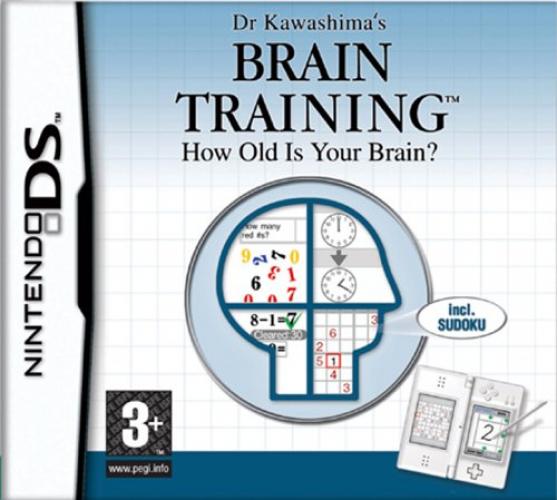
The Entertainment and Leisure Software Publishers Association (ELSPA) is the UK’s leading video games trade body, to learn about their views on the state of the British Games Industry, and their opinion on the future of gaming in general, PlayStation LifeStyle chatted with Michael Rawlinson, the Director General of ELSPA about these issues, and many more.
PlayStation LifeStyle: Hi Michael, could you introduce yourself and tell us what your position is at ELSPA?
MR: My name is Michael Rawlinson, and I am the Director General of ELSPA.
 PSLS: One thing a lot of people are confused about, is what the differences between ELSPA and TIGA are, could you explain some of these differences?
PSLS: One thing a lot of people are confused about, is what the differences between ELSPA and TIGA are, could you explain some of these differences?
I think ELSPA’s focus is as a trade association that’s representing video games and interactive leisure entertainment industry, and its focus is really around creating a favourable environment for companies to do good business in the market place, so that that means that obviously the commercial realities that they have to trade, the regulatory environment that they have to do business in, and that is becoming even more interesting and tricky as games go more and more online, the whole virtual world, trading, monetary value, the relationship between planets in the online world around user generated content, chat moderation, and so on and so forth. And then of course ensuring that the public and media world in which we operate has a favourable and understanding appreciation of interactive entertainment, and doesn’t try to mis-characterise the industry. So those are some of the areas that we’re concentrating on, I guess the final one is to ensure that video games, interactive entertainment, are seen as a vehicle by which we can encourage and inspire young people to work at studying the right skills, like maths, computer studies and design, that could give them a job in our industry, or indeed in other technical based industries – there is a shortage of students covering stem subjects, so that is a very important point, to make sure that we have the right trained and qualified work force going forward.
PSLS: But do the organisations ever clash, and if so, how do you handle differences?
We do communicate, and work as close as we can with TIGA, I think their agenda is a little bit more focused around the creative process, and the development end of the business, I think we try not to clash, and we talk over the issues to make sure each party understands where the other one is coming from, so I think its much more a complimentary process than an adversarial one.
PSLS: Last year, Ed Vaizey told PSLS that he would love to see TIGA and ELSPA merged, what is your opinion on this?
Well we’ve spoken to TIGA about closer co-operation, and they’ve made their position quite clear that they want to remain an independent trade association and they don’t see that they have to join forces with us to become one, so that’s where we are at.
PSLS: Yeah, that’s what Richard Wilson told us, that he didn’t want to merge…
MR: Yes.
 PSLS: Last year, ELSPA helped push the PEGI rating system in the UK, do you believe it effectively conveys the level of maturity of certain games to people not familiar with the Industry?
PSLS: Last year, ELSPA helped push the PEGI rating system in the UK, do you believe it effectively conveys the level of maturity of certain games to people not familiar with the Industry?
MR: This is a process, we are waiting the final outcome of clauses 40 and 41 within the digital economy bill, which we hope, for that reason, will get passed through legislation, and before Parliament rises for a General Election. Once we have PEGI enshrined in law, then there will be a public awareness campaign, an education campaign. We need consumers and those who have responsibility for the welfare of young people, first of all to know that video games are classified in a very robust way for content suitability, that the age rating exists. So we need them to know that, we need them to understand why different games get different age ratings and that some games are not for children and are designed for a adult audience, and then of course the third most important aspect of this is that they then act on this information and make an informed decision as to whether they will allow a child within their care the responsibility to play a particular video game. At the end of the day, it is the parent’s and guardian’s choice as to what games they let their children play, that they should do that in an informed way, and not through ignorance.
PSLS: Do you believe that overly violent or sexual games hamper the ability of the medium being accepted by the media and Parliament?
MR: No, I don’t think so ultimately. I don’t think it has affected the movie industry at all, no one characterises the whole movie industry off the back of the Emmanuelle films, or Saw or Texas Chainsaw Massacre, or a very violent Tarantino film. They recognise that those titles have a place in the whole landscape of creative films that are produced, and they put them into a position, into a cultural position, into a genre position, into an audience position, that is appropriate for that film. And then they say, but we’ve got Disney films, we’ve got Pixar cartoons at the other end, to cater for a different part of the audience, so no one, no one would characterise the film industry based on one or two titles, and indeed I think we are moving away from that very broad brush and inappropriate classification of the video games industry. I think we are getting to a point where people do understand that video games – and I even don’t want to use the term ‘video games’, I think it’s interactive entertainment, we’ve got Wii Fit, Wii Sports, Active Games like ‘SingStar’, games that enable people to interact with others in a non-sexual and non-violent way and people understanding that the industry is not just about violence. You talk about sexual games, we lack any amount of sexual games it’s not an area that really exists to any great extent, so even the notion that people should label us in that way is just a misrepresentation.
 PSLS: Recently, MP’s such as Ed Vaizey and Tom Watson have helped spread awareness of the industry among Parliament, however many MP’s still refuse to truly acknowledge the industry, why do you think this is?
PSLS: Recently, MP’s such as Ed Vaizey and Tom Watson have helped spread awareness of the industry among Parliament, however many MP’s still refuse to truly acknowledge the industry, why do you think this is?
MR: I wouldn’t agree with that. I would say that Keith Vaz’s position has changed enormously over the last 5 or 6 years since he came to prominence as far as our industry is concerned. When the ‘Manhunt’ saga came to light, Keith Vaz was calling for violent video games to be banned, not to be made available on the market – fullstop, period. In his last debate that he took part in in November in Parliament he said ‘This is not about censorship, this is about ensuring that games are sold responsibly and that adult-regulated games are not sold to children’ – that is a huge shift in position and I think that is one that we have played a significant part in achieving. So, I think, to characterize Keith Vaz as being completely and solely against our industry would be wrong.
PSLS: Piracy has become an increasing problem for the industry, do you believe that we will ever be able to control this issue?
MR: I think, piracy for our industry is something that we do have an opportunity to control and it’s by the very nature of our product – we are interactive entertainment – and when you have an interactive medium, that now relies on interaction with other humans as opposed to the artificial intelligence of the early days of gaming, this gives us a unique proposition because our industry where we truly have games where players interact with other players, we are effectively getting the equivalent to a live performance. If you don’t show up at a given time at a given game to play with your friends or other players, you will not be able to have that experience. So, a game that has an off-line component and an on-line component, if you only play the off-line component because you are playing a pirated game, you will miss a major part of the experience. And I think, as we move forward players will understand and accept that. So, interactivity is a key part. I think, business models and games design will also help to serve to protect the industry and by that I mean we are seeing a prolification of free-to-play and free-to-access games where you pay through micro-payments or subscription for enhanced benefits and enhanced content within your game. So, the business model is changing, you don’t need to pirate the game, you can enjoy those games without paying but if you chose to do so and enough people chose to do so there is a revenue-model in return. Of course, there’s ad-funded games that carry placement and so and so forth, so the business models will solve a lot of the issues around piracy but that is not to say that there won’t be some games that are pirated and we will continue to what we can to minimise the losses to our industry. So, I think that, as we move forward the smart money is on companies designing and delivering games that will circumvent the need for piracy.
PSLS: In recent years, the UK Games Industry’s position as a world leading industry has become increasingly unsteady, do you believe there will come a time when this decent becomes irreversible?
MR: I think, we need to characterize the UK games industry in two ways: One as a base for creation of video games and the other as a centre for doing business. In terms of a centre for doing business for selling and marketing and maintaining a consumer relationship the UK is strong and has never been as strong. It is the location of choice for most multinational companies to base their European operations from. We have an incredibly skilled work-force, dedicated to sales and marketing, distribution and consumer relations and I don’t see any issues around that for the foreseeable future. In terms of the creative prowess of our games industry, I think, the world is is changing, we have seen a decline in the number of block-buster, big-budget AAA games being produced here. But does that mean that our industry is in decline? I’m not sure it does, I think, that we have again an incredibly skilled work-force here, we have a creative threat that runs through our characters as a British Nation, that still remains strong, and one that can be exploited. I think, we do need for more new business opportunities, rather than clinging to old business models and old business opportunities that we may not be able to sustain. So, I don’t think we’re in irreversible decline, I think, there is a need for a coordinated approach to promoting the creativity and the technological skills within our industry, we need to make sure that  universities and schools are training and raising a generation that is interested in maths, physics and computer science and programming, I think, that’s very important and we certainly as an industry will have a need and the opportunity to employ those people.
universities and schools are training and raising a generation that is interested in maths, physics and computer science and programming, I think, that’s very important and we certainly as an industry will have a need and the opportunity to employ those people.
PSLS: Finally, on a lighter note, do you play games, and if so what is your favourite game?
MR: I do play games, I did play on my iPhone, I downloaded ‘Harbour Master’ yesterday, which I found incredibly enjoyable. I don’t have time to play deeply immersive video games but I do enjoy the interactive experience, I enjoy my Wii Sports and Wii Fit and I enjoy my Brain-training as well.
PlayStation LifeStyle would like to thank Michael Rawlinson and ELSPA for taking the time to hold the interview. To learn more about the British Games Industry, you can read both TIGA’s and Blitz’s views on the economy. Stay tuned to PlayStation LifeStyle for more PlayStation news, reviews and interviews.




